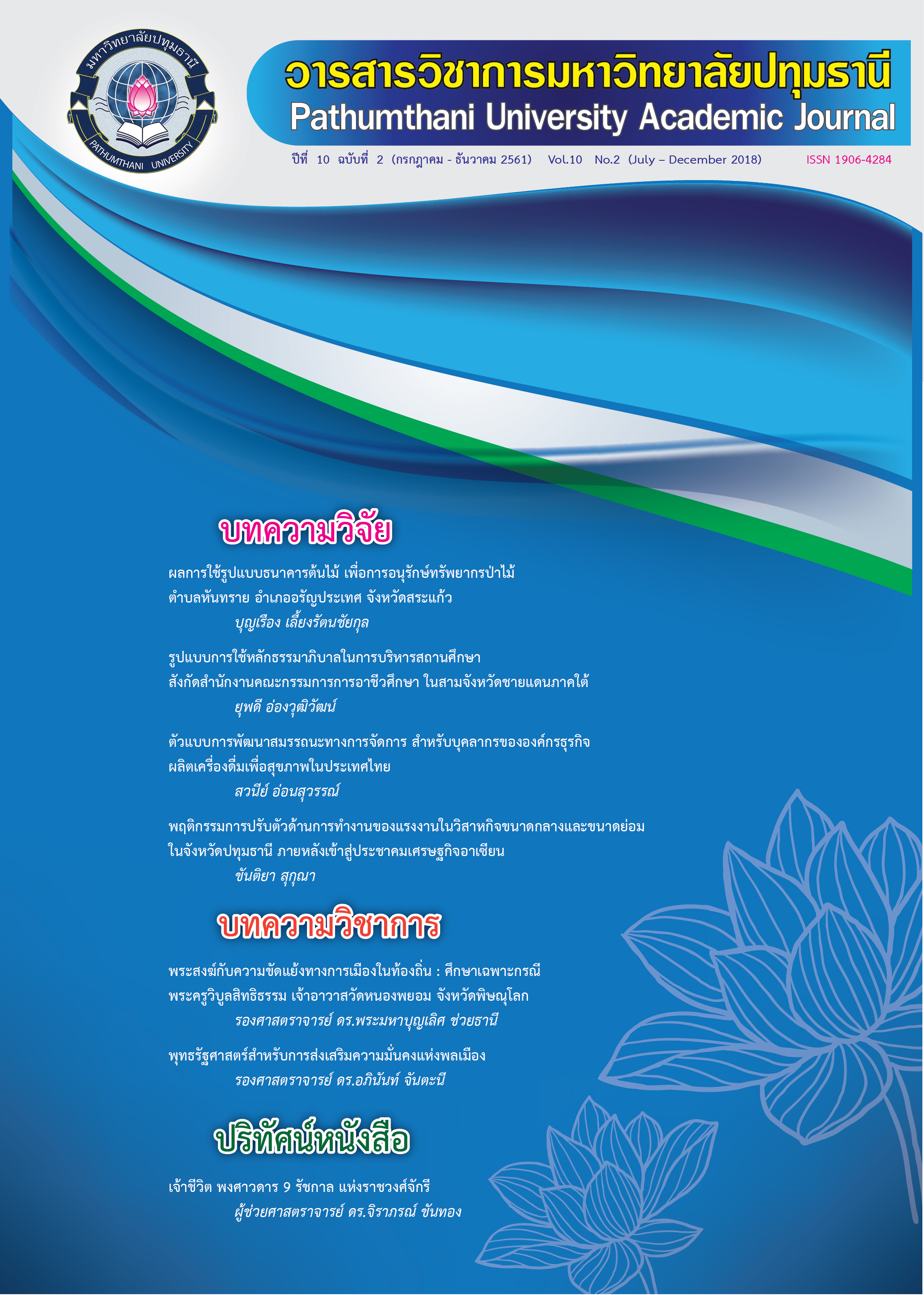ปัจจัยที่มีอิทธิพลต่อการเปิดเผยตนเองในเครือข่ายสังคมออนไลน์
Keywords:
ปัจจัยที่ส่งผล, การเปิดเผยตนเอง, เครือข่ายสังคมออนไลน์Abstract
This article analyzes the research on factors affecting Self-disclosure of online social networking in the current number of 12 articles by analyzing the frequency of various factors. The article discusses the factors that affect the behavior of the current online social networks such as social and norms of social network users online, personal characteristics, motivation and the ability of individual, attitudes about trust, system security and privacy, entertainment value, to benefit from the use of social networking online. It also presents the effects of using online social networks such as the attitude, the private and safety data.
References
2. C.M.K. Cheung et al. (2011). Online social networks: Why do students use Facebook. Available from https://pdfs.semanticscholar.org/b68c/f3e44fb0e7d8f34cf8b3f7822c6e5f37fa49.pdf.
3. Clay Posey et al. (2010). “European Journal of Information Systems”. European Journal of Information Systems. [Online]. Available from https://link.springer.com/journal/41303
4. Erin E.Hollen baugh, Amber L. Ferris. (2014). “Facebook self-disclosure: Examining the role of traits,
5. Hanna Krasnova. (2010). “Online social networks: why we disclose”. Journal of Information Technology. [Online]. Available from https://link.springer.com/article/10.1057/jit.2010.6 Integrating network externalities and motivation theory” Computers in Human Behavior. Volume 27, Issue 3, May 2011. pp 1152-116.
6. Kuan-Yu Lin,Hsi-Peng Lu. (2011). “Why people use social networking sites: An empirical study Mads Bødker,
7. Gregory Gimpel, Jonas Hedman. (2014). Time-out/time-in: the dynamics of everyday experiential computing devices. [Online]. Available from http://onlinelibrary.wiley.com/doi/10.1111/isj.12002/full
8. Natalya N. Bazarova,YoonHyung Choi. (2014). “Self-Disclosure in Social Media: Extending the Functional Approach to Disclosure Motivations and Characteristics on Social Network Sites.” Journal of Communication. Available from http://onlinelibrary.wiley.com/doi/10.1111/jcom.12106/full
9. Social cohesion, and motives”. Computers in Human Behavior 2014 – Elsevie. [Online]. Available from http://www.sciencedirect.com/science/article/pii/S074756321300294X
10. Yanlin Zhang, Meng Gong, JingguangGao, Zan Mo. (2013). User Acceptance of Social Network Information Technology: An Empirical Analysis. [Online]. Available from http://www.airitilibrary.com/Publication/alDetailedMesh?docid=P20150529009-201308-
11. Yoon Hyung Choi, Natalya N. Bazarova. (2014). Self-Disclosure Characteristics and Motivations in Social Media: Extending the Functional Model to Multiple Social Network Site. [Online]. Available from http://onlinelibrary.wiley.com/doi/10.1111/hcre.12053/
Downloads
Published
How to Cite
Issue
Section
License
บทความที่ได้รับการตีพิมพ์เป็นลิขสิทธิ์ของวารสารมหาวิทยาลัยปทุมธานี
ข้อความที่ปรากฎในบทความแต่ละเรื่อง เป็นความคิดเห็นส่วนตัวของผู้เขียน กองบรรณาธิการไม่จำเป็นต้องเห็นด้วยเสมอไป และไม่มีส่วนรับผิดชอบใด ๆ ถือเป็นความรับผิดชอบของผู้เขียนแต่เพียงผู้เดียว



